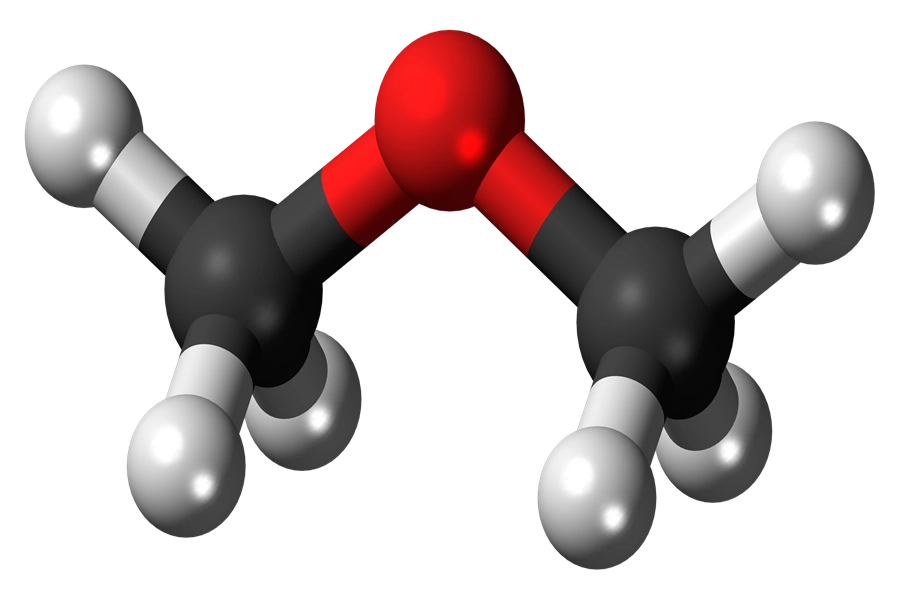Dimethyl Ether
We’re here to answer your questions and provide assistance
Properties and Advantages of Dimethyl Ether
Dimethyl Ether (DME) is a colorless, non-toxic gas with a faint ether-like odor. Its chemical properties make it highly versatile and an increasingly popular choice in various industrial applications. Key properties include:
Environmentally Friendly: DME is considered a cleaner alternative to traditional propellants, as it has no ozone-depleting potential (ODP) and a low global warming potential (GWP).
High Purity: Its chemical stability and low corrosiveness ensure safety and efficiency in applications.
Solubility: DME’s compatibility with a wide range of organic compounds makes it ideal for blending and formulation.

Applications of Dimethyl Ether
DME’s unique characteristics make it indispensable in various industries, including:
Aerosol Propellant: As a propellant, DME is widely used in aerosol sprays for cosmetics, household products, and industrial applications. It offers excellent solubility with active ingredients, ensuring uniform dispersion and consistent performance.
Blowing Agent: In foam production, such as polyurethane and polystyrene foams, DME acts as a blowing agent, providing lightweight and thermally insulating properties in products like packaging, insulation, and automotive components.
Fuel Alternative: With its high cetane number, DME is an excellent alternative to diesel fuel. It burns cleanly, emitting virtually no soot, and can be produced from renewable feedstocks, supporting the transition to low-carbon energy systems.
Chemical Intermediate: DME serves as a precursor in the synthesis of dimethyl sulfate, acetic acid, and other chemicals, making it valuable in the pharmaceutical and chemical industries.
Packaging and Supply
To meet the needs of diverse industries, we provide Dimethyl Ether in:
- ISO Tanks: Ideal for bulk transportation, ISO tanks ensure the safe and efficient delivery of DME to your facility. These tanks are designed for high-pressure gases, maintaining product integrity during transit.
Custom packaging and supply solutions are also available to accommodate specific operational requirements.
Sustainability and Environmental Impact
As industries prioritize sustainability, DME has emerged as a preferred choice due to its eco-friendly attributes. Its potential for production from renewable sources, such as biomass, agricultural waste, and captured CO₂, positions it as a key player in the circular economy. Additionally, its clean combustion characteristics contribute to improved air quality and reduced greenhouse gas emissions.
